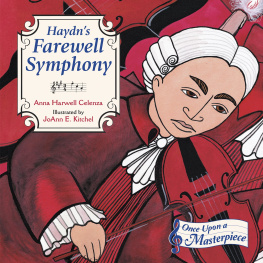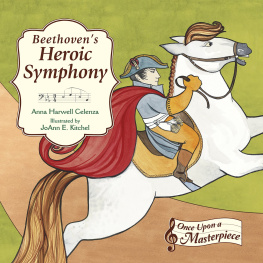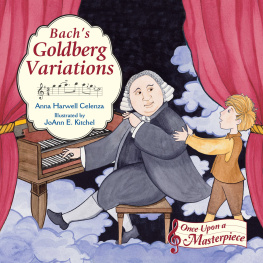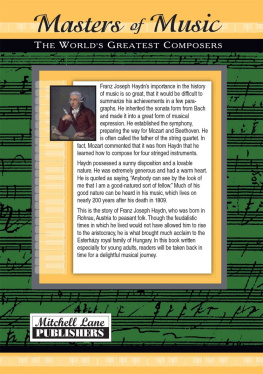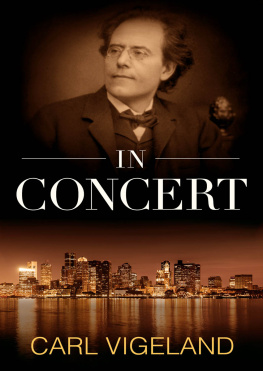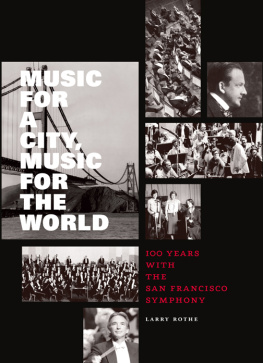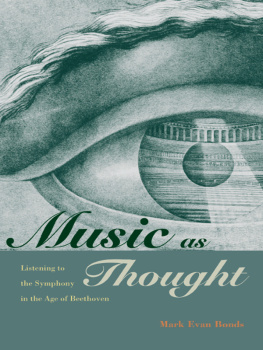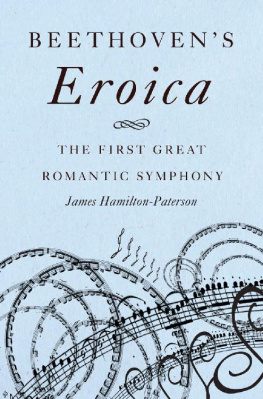
Hayd ns
Farewell Symphony
Anna Harwell Celenza
Illustrated by JoAnn E. Kitchel

For my parents, Ann and Rupert, and my loving husband, Chris.
A. H. C.
For Christopher. You are my treasure.
J. K.
A special note of thanks to our editor, Yolanda LeRoy,
whose guiding vision made the production
of this book a true team effort.
2016 Once Upon a Masterpiece edition
Text copyright 2000 by Anna Harwell Celenza
Illustrations copyright 2000 by JoAnn E. Kitchel
All rights reserved, including the right of reproduction in whole or in part in any form.
Charlesbridge and colophon are registered trademarks of Charlesbridge Publishing, Inc.
Published by Charlesbridge
85 Main Street, Watertown, MA 02472
(617) 926-0329
www.charlesbridge.com
Library of Congress Cataloging-in-Publication Data
Celenza, Anna Harwell.
Haydns farewell symphony / by Anna Harwell Celenza ; illustrated by JoAnn Kitchel.
New Once upon a masterpiece series edition.
pages cm
Summary: In 1772, with summer long gone and winter fast approaching,
Joseph Haydn, court musician to Prince Nicholas of Esterhazy, creates a symphony
that finally persuades his oblivious employer to close up his summer palace
and allow the staff to return home.
ISBN 978-1-58089-527-9 (reinforced for library use)
ISBN 978-1-63289-501-1 (ebook)
ISBN 978-1-63289-502-8 (ebook pdf)
1. Haydn, Joseph, 1732-1809Juvenile fiction. [1. Haydn, Joseph, 1732-1809Fiction.
2. ComposersFiction.] I. Kitchel, JoAnn E., illustrator. II. Title.
PZ7.C314 Far 2016
[Fic]dc23 2014049182
Printed in China
(hc) 10 9 8 7 6 5 4 3 2 1
Illustrations done in watercolor and ink on Arches cold press paper
Display type and text type set in Giovanni and Della Robbia
Color separations by Sung In Printing, Korea
Printed by C+C Offset Printing Co. Ltd. In Shenzhen, Guangdong, China
Production supervision by Brian G. Walker
Designed by Diane M. Earley
Visit Annas Music Spot at www.charlesbridge.com/AnnasMusicSpot
to listen to Haydns Farewell Symphony .
Synched Read-Along Version by:
Triangle Interactive LLC
PO Box 573
Prior Lake, MN 55372
ISBN-13: 978-1-68444-713-8 (e-book)

here
are my trunks of clothes?
bellowed Prince Nicholas.
And my chess set and the
silver candlesticks?
They are all on the wagons,
sir, replied a weary servant.
Haydn! the prince shouted.
Are the instruments packed? What
about the musicians? Where are all
the musicians?
They are saying farewell to their
families, sir, Haydn replied.
Well, tell them to hurry up!
barked the prince. I am ready to leave.
This was the scene at Prince
Nicholass winter estate in Eisenstadt,
Austria, on a sunny March morning in
1772. The winters snow had just
started to melt, and Prince Nicholas
was preparing for the annual move to
his summer palace in the Hungarian
countryside. The palace was called
Esterhza, and it was the princes
pride and joy.

Accompanying the prince were
twenty-two musicians and the royal
music director, Joseph Haydn. Haydn
was an excellent composer, famous
throughout Europe. He wrote music for
Prince Nicholas, but that was not his only
responsibility. He also made sure that the
musicians practiced diligently and stayed
out of trouble. Haydn was even in
charge of repairing broken instruments.
The musicians had many duties
themselves. They were hired to keep
Prince Nicholas and his many guests
entertained. This was by no means an
easy task. Prince Nicholas could never
have enough musical entertainment.
He demanded opera and ballet in the
evenings, chamber music in the afternoons,
outdoor music for strolls in the garden,
dance music at formal balls, dinner music
with special meals, heralding trumpeters
for the arrival of guests, and sacred music
for the palace chapel.

In short, Haydn and the musicians
were kept very busy at Esterhza so busy
that they hardly missed their wives and
children during the first few weeks. As
summer wore on, though, homesickness
set in, and the musicians began to
complain. Toward the end of July the
first violinist, Tomasini, came to Haydn
and pleaded, Papa Haydn, will you
please go to Prince Nicholas and request
that our families be allowed to join us?
We are working very hard to please
His Majesty, and it would comfort us so
if our wives and children were here.
The next day Haydn went to the
prince. Your Highness, he cautiously
began, the musicians have asked me
to speak to you. They are all quite
homesick, and they miss their families.
Please, sir, will you give them permission
to invite their loved ones to Esterhza?
What? the prince roared. They
want to invite their families? Never have
I heard such impertinence. Who do the
musicians think they are? The palace
only has one hundred and twenty-six
rooms. With all my important guests,
there is not enough room for each
servants family. Haydn, you tell your
musicians that if they want to keep their
jobs, they will learn to live without
their families for a while.

A dejected Haydn returned to his
quarters. The musicians were waiting
for him. What did he say? they asked.
When can we send for our families?
Never, Haydn glumly replied.
The prince will not allow it.
What? the musicians roared.
Never have I known such cruelty!
shouted Tomasini. We should march
over to the palace and let Prince

